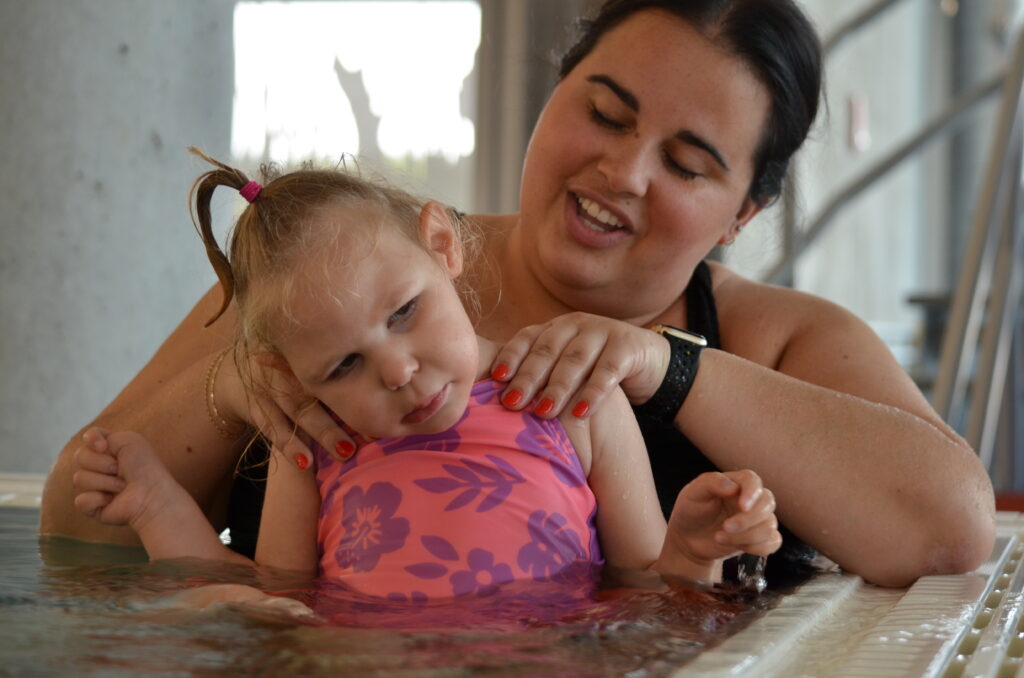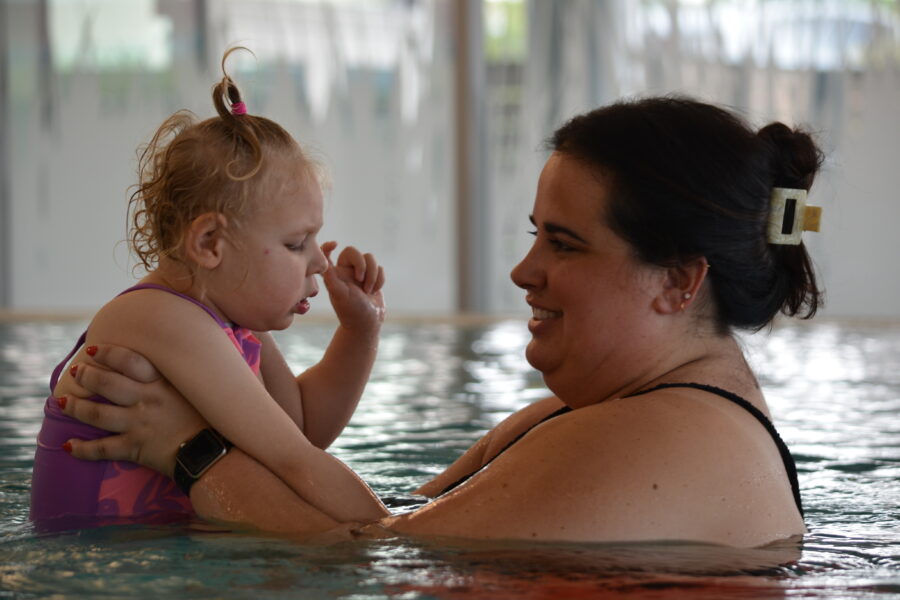As soon as Maddison Bull got into the therapy pool at the Munroe-Meyer Institute, her body relaxed. The 3-year-old’s head rested against the shoulder of her occupational therapist, Sam Montemarano. Her eyelids drooped, heavy and tired after a long week of intensive physical therapy. And, maybe most notably, her arms and hands relaxed, dragging through the warm water as Montemarano waded around the pool.
Maddison is one of a handful of patients at the Munroe-Meyer Institute who takes part in aquatic therapy.
Her sessions focus on functional movements and relaxation, Montemarano said. But the sessions also get her to engage with Montemarano and learn to follow brief directions.
Maddison has involuntary movement and low muscle tone, her father Brian Bull said. Her arms are often tense and held in a position above her head.
Being in the pool gives her muscles some respite.
“This lets her relax and move freely,” Bull said. “She can target more muscles and movements. It’s been great for her overall strength and coordination.”

Maddison has been taking aquatic therapy for a little over a year after one of her physical therapists suggested it.
Maddison is always trying to coordinate her movement out of the water, Bull said. Being in the pool not only relaxes her muscles, but helps to quiet her mind, too.
“It’s such a calming influence for her,” he said.
While Maddison’s sessions are with staff from the MMI Department of Occupational Therapy, the MMI Department of Physical Therapy offers aquatic sessions, too.
Occupational therapy has about six sessions a week year-round, Montemarano said. Physical therapy offers eight to 10 sessions a week with a break in the summer months.
Montemarano’s sessions with Maddison last about 45 minutes. While some children use noodles and inner tubes for therapy in the pool, Maddison is small enough that the support from Montemarano’s body does the trick.
During their recent session, Maddison was especially tired after a long week of intense physical therapy. The timing of her aquatic therapy was just right, Montemarano said.
She debuted that week’s swimsuit – a purple one piece adorned with pink flowers – before getting into the pool in Montemarano’s arms.
Once immersed, Montemarano helped Maddison feel the texture of the pool ledge and splash her hands in the water. At one point, the toddler dunked the back of her head in the pool, fully relaxed.
“Aquatic therapy is such a beneficial resource for so many kiddos and adults, especially for kids like Maddison,” Montemarano said. “Not only does it promote functional movements and relaxation, it allows her to take control over her movements in a way that land therapy may not always allow. It’s promoting her independence in movement while allowing for optimal relaxation of her muscles.”
